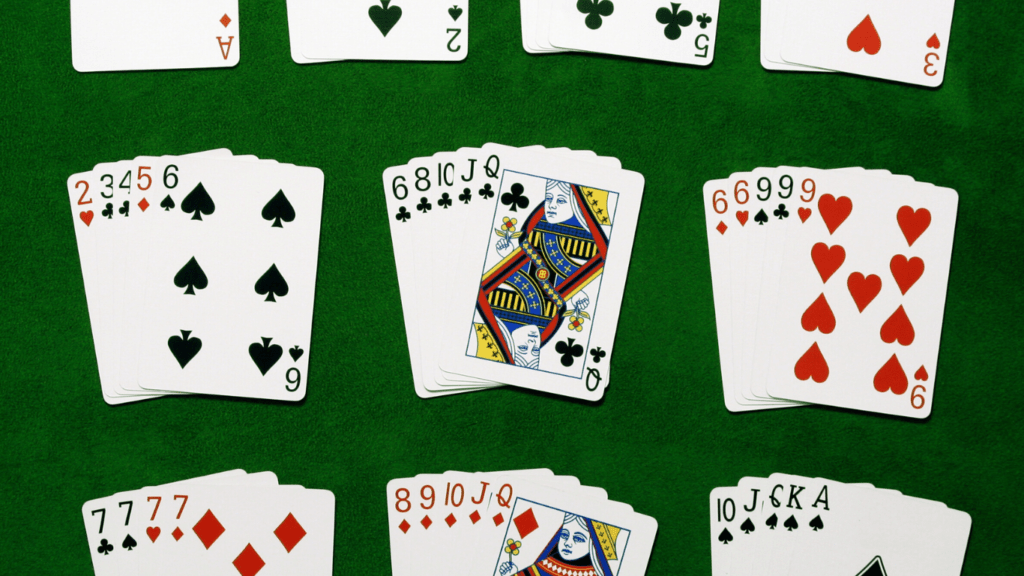The Man Who Bet His House… And Won
Who Was Ashley Revell?
In 2004, Ashley Revell, a 32 year old man from the UK, made international headlines by doing the unthinkable he sold absolutely everything he owned, including his clothes, to fund a single bet in Las Vegas. His belongings added up to just over $135,000. With no backup plan and nothing left to his name, he set out to gamble it all on a single roulette spin.
The Bet: All or Nothing
Revell walked into the Plaza Hotel & Casino in Las Vegas and placed his entire life savings on one bet: red. The roulette wheel spun and landed on red 7. Just like that, he doubled his money, walked away with $270,600, and instantly became a legend in gambling lore.
What Makes This Bet So Unbelievable?
Ashley Revell’s wager wasn’t just about money it was a raw expression of risk tolerance and instinct. Most gamblers diversify, hedge, or at least keep a portion in reserve. Revell didn’t.
Here’s what makes his bet stand out:
Total commitment: He liquidated everything, showing a full leap of faith
Singular focus: He risked all on a single spin, without splitting or second guessing
Gut vs. strategy: There was no mathematical advantage just belief
The Aftermath
Following his win, Revell used the money to start an online poker company. While the long term success of that venture is debatable, his story remains a modern myth: not only did he tempt fate, but he won, walking away richer and internationally known.
Revell’s gamble is now studied by risk takers, behavioral economists, and thrill seekers alike as an extreme test of courage, recklessness, or both.
What This Bet Really Reveals
True risk tolerance is rare and often misunderstood
High stakes betting can pay off, but rarely without complete conviction
Instinct is powerful, but dangerous when mistaken for strategy
A $10 Million Bet That Shook Vegas
Meet the Phantom Gambler
In the betting halls of Las Vegas, few figures are as enigmatic as William Lee Bergstrom nicknamed “The Phantom Gambler.” His story begins in 1980, when he walked into Binion’s Horseshoe Casino carrying a suitcase filled with $777,000 in cash. He placed the entire sum on a single roll of dice an all or nothing bet that surprised even Vegas veterans.
First major bet: $777,000 placed on a single craps roll
No one at the time had ever placed such a large wager at a Vegas casino
He won, doubling his money instantly and cementing his legend
Behind the Suitcase: High Stakes and Hidden Fears
Bergstrom didn’t just want to win he needed to prove something, both to himself and the world. His bets were calculated and theatrical, but also rooted in deep psychological layers.
Used aliases and remained elusive to media and peers
Returned years later with even larger wagers, including one over $1 million
His pattern suggested he was building not just wealth, but legacy and identity
The Psychology of Extreme Gambling
Bergstrom’s risk taking reflects more than just a thrill for gambling it reveals how high stakes behavior can become entangled with personal validation, self worth, and inner turmoil.
Saw gambling as a form of existential experimentation
His final loss preceded a tragic end, highlighting the emotional toll of extreme risk
Bet or Statement?
Was it about winning money or making a mark? Bergstrom’s bets straddled both. For some, he’s a symbol of courage; for others, a cautionary tale about what happens when self worth is measured at the roulette or craps table.
More stories like this: Insane gambling wagers
The Sports Fan Who Gambled on a Dream

In 2015, a few loyal Leicester City supporters placed wildly optimistic bets on their team to win the English Premier League. The odds? 5,000 to 1. For context, that’s the kind of number you’d expect for aliens landing on the pitch mid game. Leicester had narrowly avoided relegation the previous season and had no business competing for a title.
But one bettor whose identity was kept mostly anonymous put down £50 on the Foxes, stuck with it every step of the way, and never hedged his position, even as the team improbably steamed toward the finish line. That £50 became £250,000.
As week after week passed, pundits kept waiting for the collapse. It never came. Claudio Ranieri’s squad held its nerve, defeating big budget clubs packed with international stars. The bettor didn’t cash out when offered midseason buyouts. He said he’d done it out of belief, not greed.
This story isn’t just about a lucky bet. It’s about patience, staying loyal to what feels right, and occasionally witnessing something genuinely miraculous in sports. The odds were absurd. The outcome? Real. Leicester lifted the trophy, and one very faithful fan lifted a drink to the most improbable win in soccer betting history.
From Pizza Guy to Poker Legend
The $39 Entry That Changed Poker Forever
In 2003, an unknown accountant from Tennessee named Chris Moneymaker entered a $39 satellite poker tournament online. He wasn’t a professional player, nor did he have prior fame in gambling circles. Yet that single click, backed by a modest fee, set off a chain of events that would redefine the world of poker.
Tournament: $39 online satellite
Final prize: $2.5 million at the World Series of Poker Main Event
Historic moment: First amateur to qualify and win WSOP via online entry
Who Was Chris Moneymaker?
Chris wasn’t just a relatable underdog he was the everyman. A typical sports fan, a part time player, and someone with a name that seemed destined for headlines. When he won big, he didn’t just cash out he inspired an entire generation to believe they could do the same.
Background: Accountant, recreational player
Breakout moment: Beating seasoned pros at the final table
Impact: Sparked the “Moneymaker Effect,” leading to a global poker boom
Luck Meets Strategy
While luck opened the first door, it was strategy that carried Moneymaker to the final table. His gameplay was calculated, his bluffs convincing, and his reads decisive.
What his win taught the world:
Understanding the game reduces reliance on chance
Smart risk taking can level the playing field
Experience matters but bold decision making can shake up even the most elite circles
The Legacy
Moneymaker’s win didn’t just earn him a fortune it democratized poker. Suddenly, anyone with internet access and a grasp of the game could dream big.
Online poker participation skyrocketed after 2003
TV poker coverage surged, with audiences connecting to the ‘amateur against the odds’ narrative
Moneymaker’s story still stands as one of gambling’s most iconic underdog tales
Betting on Life: A Deadly Deal with the Devil
This one doesn’t involve Vegas, cards, or roulette wheels but it’s arguably the darkest gamble of all. Enter the shadowy world of life settlement markets, where a person can sell their life insurance policy for cash now, knowing it pays out only when they die. One man took this beyond the line of logic: he bet against his own life expectancy.
In the early 2000s, a terminally ill gambler named G who asked to remain anonymous sold off policies for upfront cash and began investing in derivatives tied to his own mortality. In plain terms: if he died sooner, investors made more. If he lived longer, they lost. He turned his final years into a hedge fund strategy. Cold? Yes. Legal? Barely. And the odds? Disturbingly real.
The situation blurred the line between financial planning and macabre betting. Moral watchdogs cried foul. Yet others saw cold efficiency why let a policy lapse when it can become liquid capital? G died two years later. Some investors celebrated. Others never saw their returns.
It raises hard questions: where do we draw the line between creative investing and playing God? When human lifespan becomes just another asset class, the risk isn’t just financial. It’s existential.
Takeaways from These Wild Bets
The thin line between fortune and foolishness in gambling isn’t about luck it’s about mindset. Extreme wagers grab headlines, but not all bets are built the same. What separates the legends from the cautionary tales often comes down to one key question: does the bettor understand the risk?
Smart gamblers know the odds, weigh them, then choose to embrace or defy them by design. It’s not recklessness it’s calculated exposure. When someone like Chris Moneymaker enters a poker tournament, he understands the strategy and variance. But there’s also the Ashley Revell types going all in on red with nothing but hope and nerve. That’s not a system. That’s raw instinct.
Then there’s the psychology. High stakes gamblers tend to chase more than money. Legacy, thrill, control these become currencies of their own. And in that chase, math often gets tossed out the window. The bigger the bet, the stronger the emotion. Rationality buckles under pressure.
In the end, fortune favors the player who knows what game they’re really playing whether it’s odds, attention, or adrenaline. Everyone else is bluffing themselves.
(Read more wild stories like these in: Insane gambling wagers)


 Mark Buxtononics is the Senior Betting Analyst at Gamble Time Hub, bringing sharp analytical skills and a deep understanding of betting markets to the forefront. Specializing in data-driven insights and predictive analysis, Mark delivers in-depth evaluations of sports betting trends, odds movements, and strategic plays. His work helps readers make smarter, more informed decisions across a variety of betting platforms. With a commitment to clarity and accuracy, Mark plays a key role in establishing Gamble Time Hub as a reliable source for expert betting knowledge.
Mark Buxtononics is the Senior Betting Analyst at Gamble Time Hub, bringing sharp analytical skills and a deep understanding of betting markets to the forefront. Specializing in data-driven insights and predictive analysis, Mark delivers in-depth evaluations of sports betting trends, odds movements, and strategic plays. His work helps readers make smarter, more informed decisions across a variety of betting platforms. With a commitment to clarity and accuracy, Mark plays a key role in establishing Gamble Time Hub as a reliable source for expert betting knowledge.

